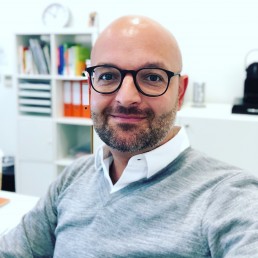Welcome to the third instalment of Dr Richard MacKinnon's series which explores and challenges the reasons we don’t take action when it comes to our own development.
Development means change and, inevitably, change involves an element of discomfort. Not pain, or danger, but psychological discomfort. And a focus on this discomfort can lead you to de-prioritise or even procrastinate about your own development.
If you think about the change your development can bring, what kind of discomfort might you experience?
Well, there’s the hard work involved in developing new skills and putting them into practice. There’s the discomfort of stepping outside of your comfort zone and trying new things. There’s the discomfort of how others might respond to the changes you’re making. And there’s the discomfort of what you’ll lose while you’re focusing on your development- perhaps time for socialising.
Why bother?
Does this paint a negative picture of development? I hope not! It’s important to acknowledge the inevitable challenges and setbacks that we’ll face while making changes in our lives – but then carry on regardless.
If we imagine the discomfort – something that is all too easy when are brains are wired to look out for threats – we can end of focusing on the difficulty and miss out on why we’re making important changes in the first place.
For example, you might decide you want to take a language class in the evenings, to increase your chances of working for your organisation in one of their European offices. You do some research into language schools and then have some of the following thoughts:
- “That sounds like a lot of hard work”
- “I’ll feel tired after work”
- “It will be awkward to practice with my colleagues”
- “I won’t be able to just go to the pub in the evening”
- “Will I be any good? What if I fail?”
All of these may be true. But in a sense, they’re incidental to you taking the class in the first place. Hard work and some level of sacrifice (and even awkwardness) come with development, including setbacks in your performance. But they’re not good reasons for avoiding developmental experiences in the first place.
What's the alternative?
We can and should be realistic about the discomfort we’ll experience when making changes. But then, we can learn to accept them as part of the journey.
Emphasising the goal and the end destination of that journey can help you keep going while wading through the discomfort. Remember, it’s not dangerous and it’s not painful. It’s just uncomfortable. Why are you taking these steps? What’s in it for you?
In the case of the language class, it could be sacrificing two evenings a week in order to master a language which will unlock the next next steps in your career. Rather than “If I do this class, I won’t have a social life”, the activity could be framed as “If I invest in this class, I’ll open up opportunities to work in our Paris office – something I’ve always wanted”.
You’re not ignoring the hard work by reframing this activity, you’re just not putting the costs (the discomfort) front and centre in your decision-making.
Discomfort can be your friend
It’s important to notice when your thoughts stray to the anticipated discomfort of planned changes. These thoughts can act as a prompt for you to ask yourself some useful questions, like:
- “What difference does that make?”
- “Do the benefits outweigh this temporary discomfort?”
- “Why am I doing this in the first place?”
- “How great will I feel when I succeed?”
Additionally, the more you expose yourself to this discomfort, the better you’ll be able to experience it – and survive it – in the future.
Think about your own development needs – might a focus on the hard work and temporary discomfort be holding you back from taking action?

Richard is a Chartered Psychologist and Coach and is the Managing Director of WorkLifePsych, a team of workplace psychologists specialising in people development. They provide coaching, development programmes and training to employees globally, across a range of industries. Richard is particularly interested in the three complementary themes of wellbeing, productivity and professional effectiveness.
Richard co-hosts the fortnightly podcast My Pocket Psych alongside Pilar Orti of WorkLifePsych. Each episode focuses on an aspect of working life and attempts to bring clarity by translating the science into something listeners can put into action. Click here to listen now: worklifepsych.com/podcast.
Development is a journey. The WiseAmigo app and community are here to help you along the way. Join the WiseAmigo community, create a Spotlight, discover more insightful content and reflect on your development journey today!
SaveSave
SaveSave

